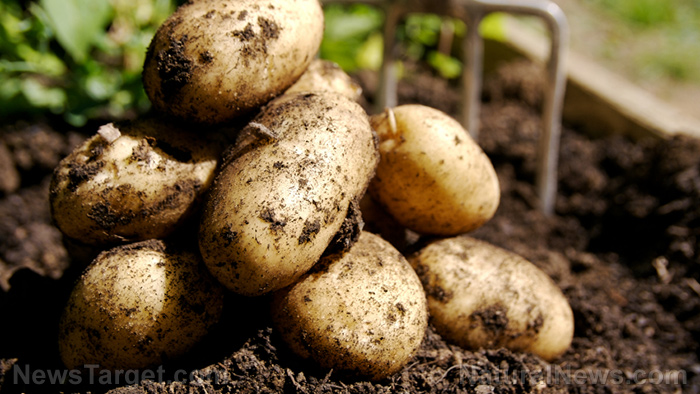Green and good for you: These proven diets are key to preventing heart problems in women with diabetes
09/23/2020 / By Ramon Tomey

Type 2 diabetes (or diabetes mellitus) affects one-fourth of Americans 65 years old and above; 68 percent of these patients will die of heart disease, while 16 percent will die of stroke.
However, a study has showed that three alternative diets can help older women with Type 2 diabetes keep the disease’s complications such as heart attack and stroke at bay. The research, published in the Journal of the American Heart Association in Sep. 2019, looked at four kinds of diets to see how these affected risks in patients with diabetes mellitus patients.
The study included more than 5,800 women who developed diabetes as adults, but did not have any cardiovascular disease at the time of the project. The women were given detailed food questionnaires, which the researchers classified according to how closely their responses adhered to these dietary patterns:
- An “alternative” Mediterranean-styled diet adapted for Western palates
- The Dietary Approach to Stop Hypertension (DASH) which limits consumption of fats and oils
- American Diabetes Association (ADA) recommendations
- A Paleolithic-style diet
Increased consumption of fruits and vegetables and reduced consumption of meat and sugar are the main characteristics of the first three eating patterns. On the other hand, the last item emphasizes meat, nuts and other vegetables and dissuades eating grains and dairy.
The study found that respondents who scored high for the alternative Mediterranean, DASH and ADA dietary patterns were associated with lower risks of cardiovascular disease and stroke. These three dietary patterns had common qualities – consumption of more fruits, vegetables, dairy and whole grain, alongside reduced consumption of sodium, sugar, and red and processed meats – that played in reducing the risk for cardiovascular disease.
Foods rich in complex carbohydrates and protein help in addressing Type 2 diabetes. Complex carbohydrates take a long time to digest, keeping glycemic levels low for longer periods while proteins contribute to a fuller feeling without adding extra carbohydrates.
Aside from recommended food lists for diabetics, dietary practices to address diabetes also abound such as the ADA’s Diabetes Plate Method. In this method – half of one’s plate should have non-starchy vegetables such as asparagus and cabbage. Proteins including meat, seafood and dairy allocate a quarter portion of the place, and the last portion reserved for carbohydrates.
Water is recommended as an accompanying drink, but some zero- or low-calorie alternatives such as unsweetened coffee and soda water are accepted.
Is the Paleolithic diet effective for managing diabetes?
The study did not observe an association between a Paleolithic-style diet and the risk of cardiovascular disease. Nevertheless, the researchers also expressed interest in further examining the effects of a Paleolithic diet on diabetes mellitus patients – due to its theoretically lower carbohydrate content from excluding grains, legumes and dairy products.
Proponents of the Paleolithic diet adhere to the idea that modern food production methods have introduced new dietary changes – and chronic diseases alongside those. Thus, the Paleolithic diet emphasizes the consumption of food prehistoric men ate during the Stone Age.
However, a study published in the Journal of Clinical Medicine noted the Paleo diet is “no better” than other diets when it comes to regulating insulin and glucose levels. The researchers looked at earlier studies comparing the diet’s effects on different aspects such as glucose and insulin levels, homeostasis assessment of insulin resistance and HbA1c.
Regardless of dietary pattern – the best way to keep diabetes mellitus at bay is mainly by eating more amounts of healthy foods such as fruits, vegetables and whole grains, cutting down on simple carbohydrates and sugars and increasing physical activity.
Find out more about natural cures for diabetes at DiabetesCure.news.
Sources include:
Tagged Under: alternative medicine, diabetes science, diabetic diets, food cures, food is medicine, heart disease, heart health, natural cures, natural medicine, prevention




















